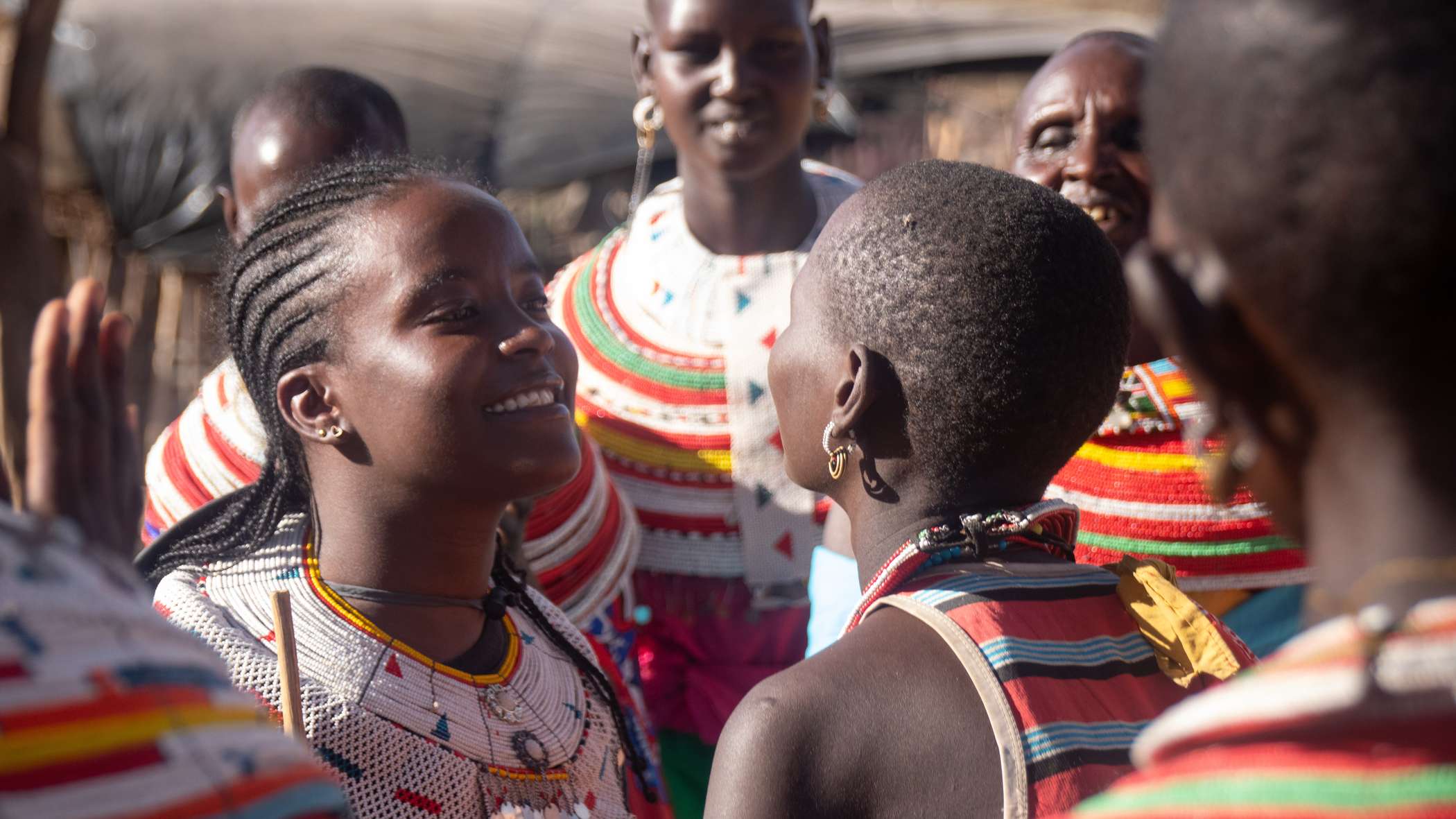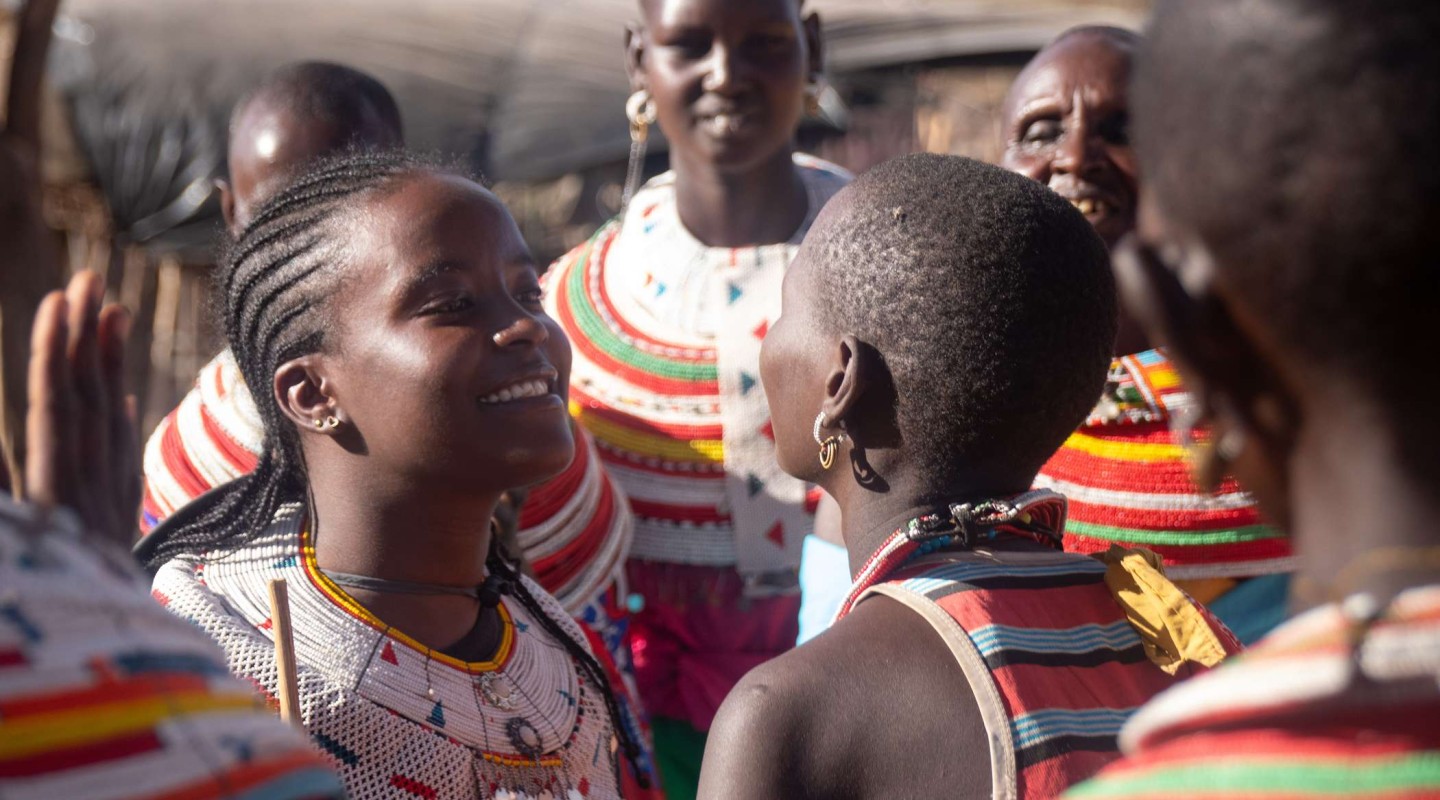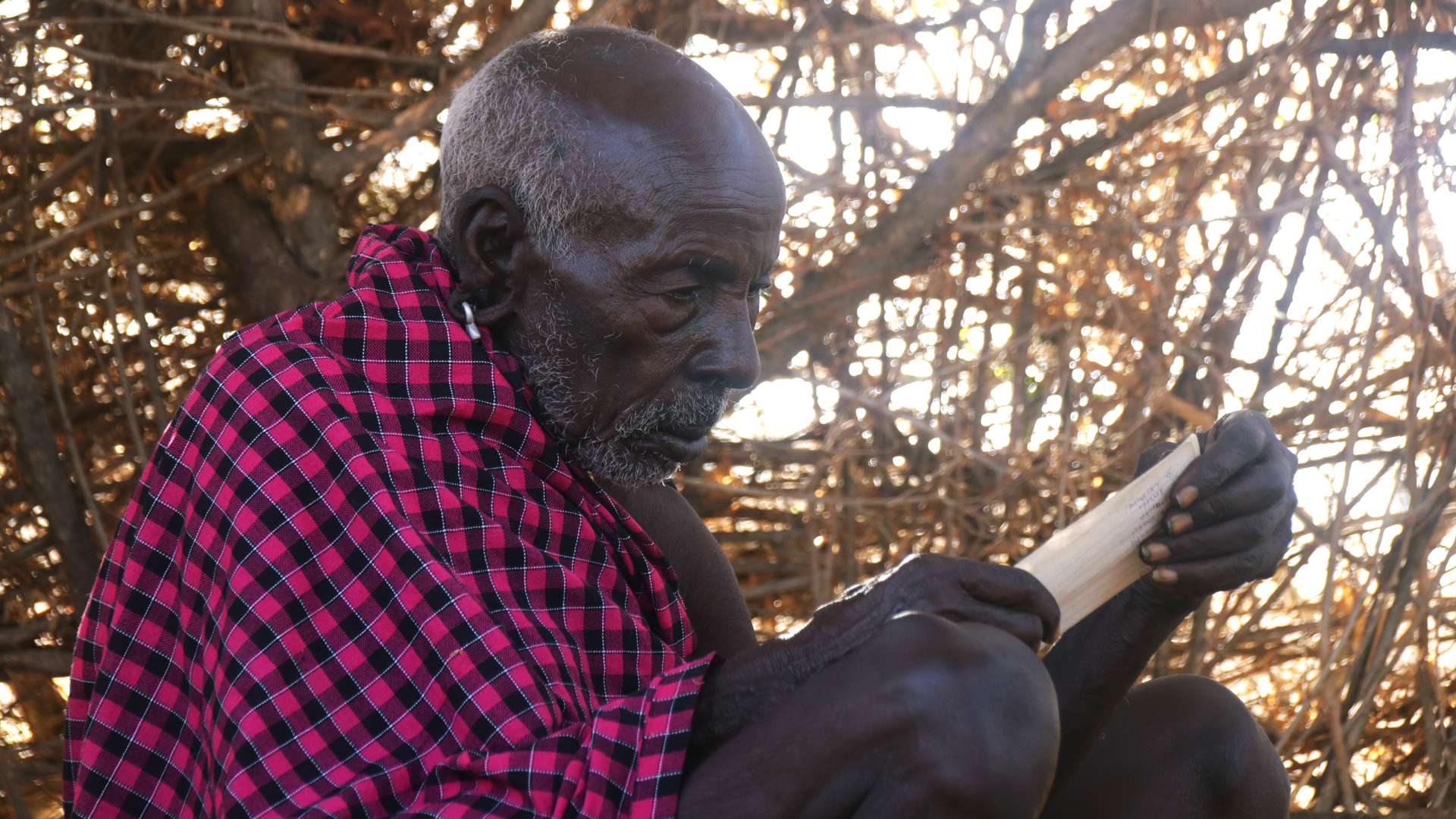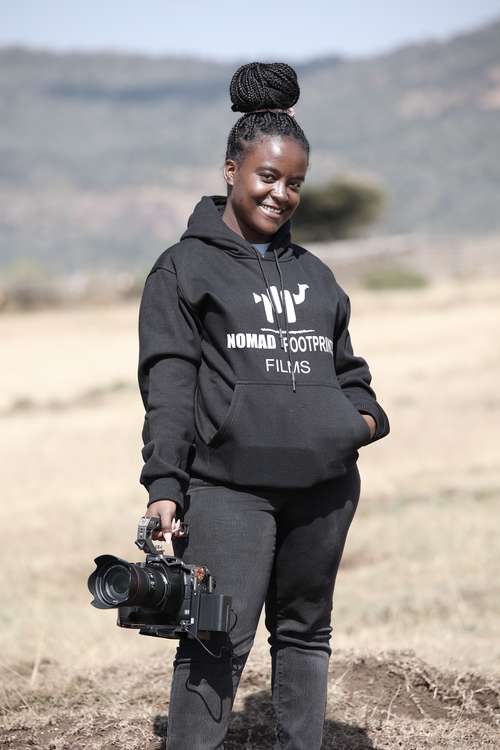As the first female Maasai filmmaker, Laissa Malih initially set out to document the land-based practices of her forefathers and ways in which climate change is reshaping Maasai communities. In returning to the IL-Laikipiak Maasai village that her parents left when she was a child, Malih experiences an epiphany: her own life is a reflection of the myriad challenges between Maasai youth and elders, women and men, ancestral ways of passing down essential knowledge and modern methods of education.
In Enchukunoto (The Return), Malih’s singular perspective also challenges ways in which the Maasai peoples have long been seen and documented by tourists and other outsiders. “Many tourists come to our Maa lands to film the lions, the gazelles,” she observes. “The camera takes and takes. I wonder what my camera can give my people in return?”





